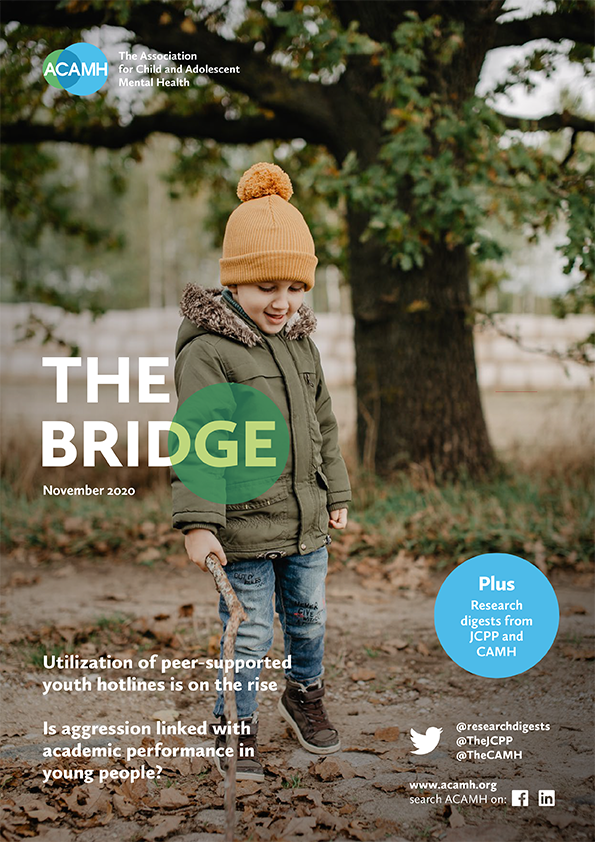Welcome to the November 2020 issue of The Bridge. The research featured in this issue covers a wide range of topics relevant to our work with young people, including neurodevelopmental, emotional, and behavioural disorders, their comorbidity, and their links with functioning and quality of life. To reveal new insights about these topics, the studies used uniquely informative designs, such as longitudinal twin designs, and sophisticated analytical techniques, such as machine learning. I hope you enjoy reading about this excellent research.
At ACAMH we’ve also been making plans for an exciting new initiative to learn from research…
CAMHS around the Campfire
ACAMH is teaming up with the Mental Elf to bring you CAMHS around the Campfire, an online journal club for people interested in youth mental health research. Each meeting we’ll get together with subject experts to discuss new research and its implications for young people and clinical practice.
Our first meeting will be held in early December, when we’ll focus on Faith Orchard and colleagues’ study that’s featured in this issue of The Bridge. Faith’s research found that young people who reported poor sleep were at greater risk of developing anxiety and depression later in adolescence and young adulthood. We’ll discuss the strengths and limitations of the study, and consider how the findings might inform strategies to prevent anxiety and depression in young people.
Read about Faith Orchard and colleagues’ study in this issue of The Bridge in the article titled ‘Insufficient sleep during adolescence might pose a risk for later depression and anxiety’.
Sign up to this FREE event now, plus ACAMH Members attending will be eligle for a CPD certificate.
Looking forward to joining many of you there!
Follow Steph on Twitter @steph_j_lewis
-
Research digests in this edition
- A machine learning approach identifies unique predictors of borderline personality disorder
- Are autistic behaviours a trait or a state of anorexia nervosa?
- Are psychotic experiences linked with early school performance?
- Children with low language ability are at risk of a poor health-related quality-of-life
- Depressed mothers and their offspring differ in terms of health risk profiles and allostatic load
- Does having both ADHD and irritability symptoms in childhood predict mental health outcomes in adolescence?
- How common and costly is persistent health anxiety in young people?
- How useful are Ofsted ratings for predicting educational outcomes and wellbeing at secondary school?
- Insufficient sleep during adolescence might pose a risk for later depression and anxiety
- Is aggression linked with academic performance in young people?
- Paediatric anxiety disorders confer a considerable public health burden

